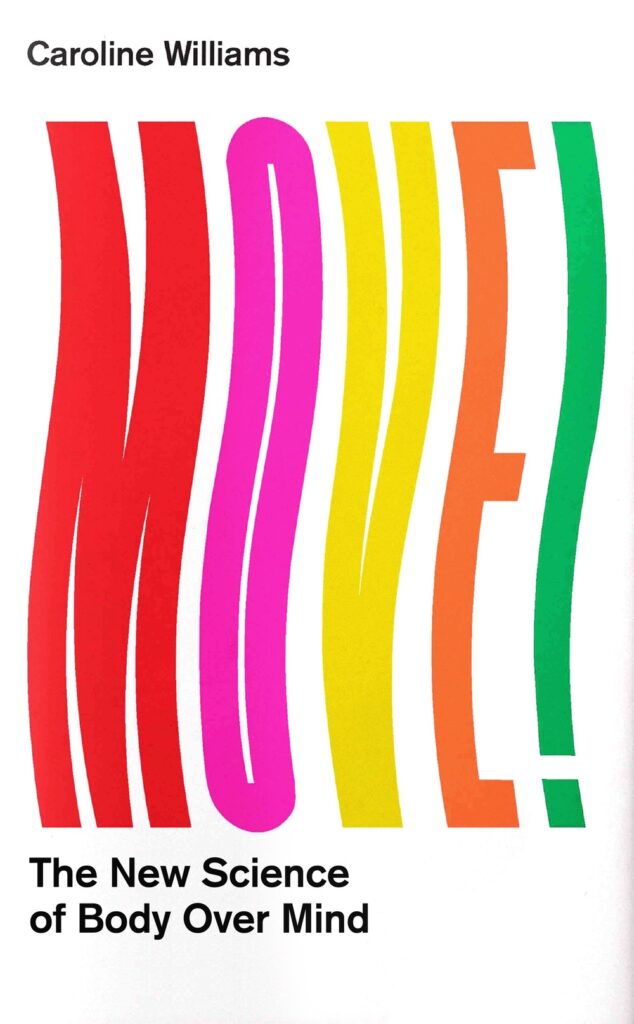Sharing my learnings from the book, Move! By Caroline Williams
Move! By Caroline Williams
In Move!, Caroline Williams explores the emerging science of how movement opens up a hotline to our minds. Interviewing researchers and practitioners around the world, she reveals how you can work your body to improve your mind. As lockdown throws us back on our own mental and physical resources, there is no better time to take control of how you think and feel.

- for all its convenience, technological innovation has had some harmful side effects on human health. As species, we’ve simply stopped moving; we’re basically sloths compared to our Stone Age ancestors. We spend a staggering 70 percent of our lives sitting still. And our brains are suffering as a result.
- Beyond the increased risk of obesity, sedentary lifestyles are also linked to falling IQs, increased antisocial behavior, shortened attention spans, memory loss, decreased creative thinking, and even a global epidemic of mental illness – with a particular emphasis on anxiety and depression. Lack of exercise also accelerates aging, making us old before our time.
- To improve overall health, you have to reduce your total time spent sitting still. That means regularly moving throughout the day, not just in isolated, high-intensity intervals.
- Humans are still biologically programmed to think and move at the same time. When we’re sitting still, our bodies decide to conserve energy by cutting brain capacity – and it’s only when we get moving that our minds are set in full motion again. So the next time you’re in a mental rut, find your own thinking path and take multiple walks per day – your brain (and body) will thank you.
- Experiments suggest that physically moving forward can instill an emotional sense of progress while also promoting positive thinking. With each step, you’re mentally transported away from the past and moving toward the future.
- After just 20 minutes of brisk walking, endorphins start working their magic in the brain – relieving stress and making you happier. Changing the way you walk can improve your mood, too. For people prone to slouching, straightening up and putting a pep in their step has been proven to help promote positive thinking.
- Depression can also be relieved through strength training exercises, like weight lifting or martial arts. On the whole, research confirms that people who do more physical activity feel heightened levels of control over their own lives – and are happier as a result.
- For optimal results, exercise more often – not more intensely.
- To improve human health on a global scale, we need to collectively act and adopt what the author calls a movement manifesto.
- Encouraging frequent movement from an early age. Healthy habits should be instilled in childhood – laying the foundation for long, active lives.
- Promoting exercise early on can have powerful impacts, including increasing global IQs, reducing stress, improving memory, and even slowing down the aging process. Maintaining healthy exercise habits is one of the most important lessons we can teach our children – so yes, it deserves a permanent place in the curriculum.


Leave a Reply